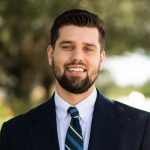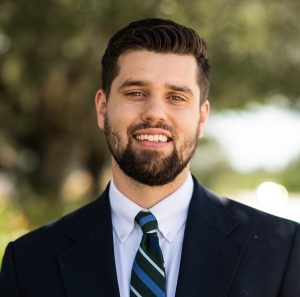Every preacher has been there. You have your chosen text before you, you’ve studied and determined what it is you will teach from the text. The question now is, how do I get my point across on Sunday morning? Preaching is more than a mere lecture. It is more than a transferal of information. In On Christian Teaching, St. Augustine, following Cicero, states that the Christian teacher “should speak in such a way as to instruct, delight, and move [his] listeners… instructing is a matter of necessity, delighting a matter of charm, and moving a matter of conquest.” (Book IV, 74)
The preacher must labor to bring true and relevant facts to his listeners from the text, he must “delight” with his words in order to captivate their attention and make his argument more persuasive, and he must move his listeners to act, that is, apply what they have learned in love and obedience. Delighting and moving an audience can be one of the most difficult tasks for the preacher. But Augustine warns that his focus should not be given solely to the rules of oratory and eloquence in order to accomplish these two tasks. While this will undoubtedly prove useful for the preacher and beneficial to the congregation, what is of utmost importance when considering how to say what one must say is prayer. Success in preaching must be pursued to the best of the preacher’s ability. Yet, he must recognize that all of his ability comes from God. As the apostle says, “what do you have that you did not receive?” (1Cor. 4:7). Augustine says that the preacher, “…should be in no doubt that any ability that he has and however much he has derives more from his devotion to prayer than his dedication to oratory; and so, by praying for himself and for those he is about to address, he must become a man of prayer before he becomes a man of words. As the hour of his address approaches, before he opens his thrusting lips he should lift his thirsting soul to God so that he may utter what he has drunk in and pour out what has filled him” (Book VI, 87).
Success in preaching must be pursued to the best of the preacher’s ability. Yet, he must recognize that all of his ability comes from God.
Augustine gives a very good reason for relying on the power of prayer above the power of oratory. He says, “who can know what is expedient to say or our audience to hear at a particular moment but the one who sees the hearts of all? And who can ensure that we say what is right and say it in the right way but the one in whom we and our sermons exist?” God is the One who knows all things, sees all hearts, and understands the best way to communicate His truth to each and every heart. The preacher must rely on Him to provide the right message, and the right manner of speaking that message. This is why our Lord said “do not be anxious how you are to speak or what you are to say, for what you are to say will be given to you in that hour. For it is not you who speak, but the Spirit of your Father speaking through you” (Matt. 10:19-20).
There is much to be gained through the study of eloquence and oratory. Augustine was a teacher of classical rhetoric until his conversion and subsequent ordination to the ministry. The very fact that Augustine eagerly follows the paradigm set forth by Cicero in instructing ministers shows that Augustine prized eloquent speech and the study of rhetoric. The practice of oratory can make a message more delightful and moving for the congregation. However, when seeking success in the pulpit, the preacher must pursue prayer before eloquence.
Follow Graham Gunden:
-
- Twitter | @grahamgunden
- Facebook | @grahamgunden























